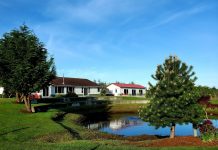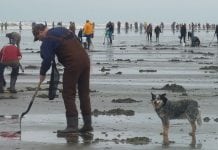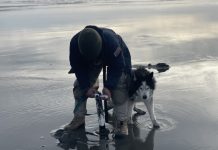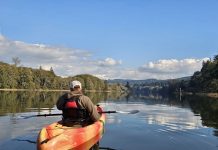This calendar is the place to find fun events happening throughout Grays Harbor County including Aberdeen, Hoquiam, Westport, Ocean Shores, Elma, Montesano and beyond.
Have an event that isn’t listed? Please email events@GraysHarborTalk.com with the following information:
- Name of Event
- Date, time and location (name of business if applicable and complete address)
- Organizer(s) name
- Cost
- URL to purchase tickets
- Website URL
- SHORT description of event
- Photo
Our editors will review and post within a few business days.

The Grays Harbor Genealogical Society will be hosting a Genealogy Café at the Hoquiam and Montesano libraries. Whether you’re new to genealogy or experienced, you’ll learn about local resources, as well as get individualized help using the library’s online resources and print materials. This free program is provided on a first come, first served basis, no registration is necessary. Drop-in anytime between 1:00 and 4:00 p.m. on Sat., April 8th.
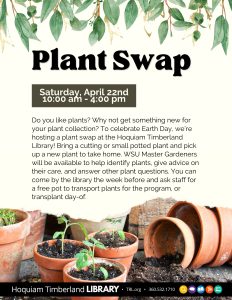
Do you like plants? Why not get something new for your plant collection? To celebrate Earth Day, we’re hosting a plant swap at the Hoquiam Timberland Library! Bring a cutting or small potted plant and pick up a new plant to take home. WSU Master Gardeners will be available to help identify plants, give advice on their care, and answer other plant questions. You can come by the library the week before and ask staff for a free pot to transport plants for the program, or transplant day-of.
Local history collections of the Hoquiam area. Several businesses and private history collections on exhibit.
WDFW approves final coastal razor clam digs of the spring season beginning Thursday, May 4
OLYMPIA – Washington Department of Fish and Wildlife (WDFW) shellfish managers today confirmed the final coastal razor clam digs of the season can proceed as planned from May 4-14.
“This last tide series had lots of happy diggers, and we’re anticipating more of the same for this upcoming tide series to close out the season,” said Bryce Blumenthal, a WDFW coastal shellfish biologist.
On all open beaches – Long Beach, Twin Harbors, Mocrocks, and Copalis – the daily limit is 20 razor clams instead of the usual 15. Each digger’s clams must be kept in a separate container, and all diggers must keep the first 20 clams they dig, regardless of size or condition.
Not all beaches are open for every dig, so diggers are encouraged to make sure their intended destination is open before heading out. The most successful digging occurs within two hours before the listed time of low tide.
Digging is allowed from midnight until 12 p.m. only on May 4-10. Since low tides on May 11-14 are near or after 12 p.m., digging will be allowed from 4 a.m. until 4 p.m. for those specific days only.
The following digs during morning (a.m.) low tides are scheduled (digging allowed 4 a.m. until 4 p.m. on May 11-14 only):
- May 4, Thursday, 6:32 AM; -0.2 feet; Long Beach, Twin Harbors, Copalis
- May 5, Friday, 7:10 AM; -0.8 feet; Long Beach, Twin Harbors, Mocrocks
- May 6, Saturday, 7:49 AM; -1.2 feet; Long Beach, Twin Harbors, Copalis
- May 7, Sunday, 8:31 AM; -1.4 feet; Long Beach, Twin Harbors, Mocrocks
- May 8, Monday, 9:15 AM; -1.5 feet; Long Beach, Twin Harbors, Copalis
- May 9, Tuesday, 10:03 AM; -1.3 feet; Long Beach, Twin Harbors, Mocrocks
- May 10, Wednesday, 10:57 AM; -1.0 feet; Long Beach, Twin Harbors, Copalis
- May 11, Thursday, 11:56 AM; -0.6 feet; Long Beach, Twin Harbors, Mocrocks (digging allowed 4 AM until 4 PM only)
- May 12, Friday, 12:59 PM; -0.2 feet; Long Beach, Twin Harbors, Copalis (digging allowed 4 AM until 4 PM only)
- May 13, Saturday, 2:03 PM; 0.1 feet; Long Beach, Twin Harbors, Mocrocks (digging allowed 4 AM until 4 PM only)
- May 14, Sunday, 3:03 PM; 0.4 feet; Long Beach, Twin Harbors, Copalis (digging allowed 4 AM until 4 PM only)
WDFW plans to announce tentative digging opportunities in early fall for the 2023-2024 season via the WDFW razor clam webpage. This summer, WDFW will monitor, domoic acid, a natural marine toxin produced by certain types of marine algae, that can be harmful or fatal if consumed in sufficient quantities. More information about domoic acid, as well as current levels at ocean beaches, can be found on WDFW’s domoic acid webpage and on the DOH webpage.
As in past years, WDFW is asking beachgoers to avoid disturbing nesting snowy plovers – a small bird with gray wings and a white breast – by staying out of the dunes and posted areas along the southwest coast. Snowy plover nests are nearly invisible, and it is vital to give birds the space to live and thrive during nesting period, especially along the southern end on Twin Harbors – known as Midway Beach – and the north end of Long Beach.
Avoid leaving leftover food or trash – which attracts predators – on the beach and picnic areas, keep pets on a leash, stay out of dunes, and avoid areas which are clearly marked with posted signs. When driving on the beach, please respect the 25 MPH speed limit and enter only at designated access points. Stay on the hard-packed sand near the high tide line to avoid crushing clam beds and snowy plover nests.
Several sections of coastal beaches are closed to driving between now through Labor Day, except on days and hours when the recreational razor clam digging is open. These areas are clearly marked with signs.
To participate, razor clam diggers must purchase their new 2023-2024 recreational fishing or shellfishing licenses, available from hundreds of license vendors around the state. All diggers age 15 or older must have an applicable fishing license to harvest razor clams on any beach. To be notified of in-season rule changes as they are announced sign up for email notifications at wdfw.wa.gov/about/lists.
The Washington Department of Fish and Wildlife works to preserve, protect, and perpetuate fish, wildlife and ecosystems while providing sustainable fish and wildlife recreational and commercial opportunities.
WDFW approves final coastal razor clam digs of the spring season beginning Thursday, May 4
OLYMPIA – Washington Department of Fish and Wildlife (WDFW) shellfish managers today confirmed the final coastal razor clam digs of the season can proceed as planned from May 4-14.
“This last tide series had lots of happy diggers, and we’re anticipating more of the same for this upcoming tide series to close out the season,” said Bryce Blumenthal, a WDFW coastal shellfish biologist.
On all open beaches – Long Beach, Twin Harbors, Mocrocks, and Copalis – the daily limit is 20 razor clams instead of the usual 15. Each digger’s clams must be kept in a separate container, and all diggers must keep the first 20 clams they dig, regardless of size or condition.
Not all beaches are open for every dig, so diggers are encouraged to make sure their intended destination is open before heading out. The most successful digging occurs within two hours before the listed time of low tide.
Digging is allowed from midnight until 12 p.m. only on May 4-10. Since low tides on May 11-14 are near or after 12 p.m., digging will be allowed from 4 a.m. until 4 p.m. for those specific days only.
The following digs during morning (a.m.) low tides are scheduled (digging allowed 4 a.m. until 4 p.m. on May 11-14 only):
- May 4, Thursday, 6:32 AM; -0.2 feet; Long Beach, Twin Harbors, Copalis
- May 5, Friday, 7:10 AM; -0.8 feet; Long Beach, Twin Harbors, Mocrocks
- May 6, Saturday, 7:49 AM; -1.2 feet; Long Beach, Twin Harbors, Copalis
- May 7, Sunday, 8:31 AM; -1.4 feet; Long Beach, Twin Harbors, Mocrocks
- May 8, Monday, 9:15 AM; -1.5 feet; Long Beach, Twin Harbors, Copalis
- May 9, Tuesday, 10:03 AM; -1.3 feet; Long Beach, Twin Harbors, Mocrocks
- May 10, Wednesday, 10:57 AM; -1.0 feet; Long Beach, Twin Harbors, Copalis
- May 11, Thursday, 11:56 AM; -0.6 feet; Long Beach, Twin Harbors, Mocrocks (digging allowed 4 AM until 4 PM only)
- May 12, Friday, 12:59 PM; -0.2 feet; Long Beach, Twin Harbors, Copalis (digging allowed 4 AM until 4 PM only)
- May 13, Saturday, 2:03 PM; 0.1 feet; Long Beach, Twin Harbors, Mocrocks (digging allowed 4 AM until 4 PM only)
- May 14, Sunday, 3:03 PM; 0.4 feet; Long Beach, Twin Harbors, Copalis (digging allowed 4 AM until 4 PM only)
WDFW plans to announce tentative digging opportunities in early fall for the 2023-2024 season via the WDFW razor clam webpage. This summer, WDFW will monitor, domoic acid, a natural marine toxin produced by certain types of marine algae, that can be harmful or fatal if consumed in sufficient quantities. More information about domoic acid, as well as current levels at ocean beaches, can be found on WDFW’s domoic acid webpage and on the DOH webpage.
As in past years, WDFW is asking beachgoers to avoid disturbing nesting snowy plovers – a small bird with gray wings and a white breast – by staying out of the dunes and posted areas along the southwest coast. Snowy plover nests are nearly invisible, and it is vital to give birds the space to live and thrive during nesting period, especially along the southern end on Twin Harbors – known as Midway Beach – and the north end of Long Beach.
Avoid leaving leftover food or trash – which attracts predators – on the beach and picnic areas, keep pets on a leash, stay out of dunes, and avoid areas which are clearly marked with posted signs. When driving on the beach, please respect the 25 MPH speed limit and enter only at designated access points. Stay on the hard-packed sand near the high tide line to avoid crushing clam beds and snowy plover nests.
Several sections of coastal beaches are closed to driving between now through Labor Day, except on days and hours when the recreational razor clam digging is open. These areas are clearly marked with signs.
To participate, razor clam diggers must purchase their new 2023-2024 recreational fishing or shellfishing licenses, available from hundreds of license vendors around the state. All diggers age 15 or older must have an applicable fishing license to harvest razor clams on any beach. To be notified of in-season rule changes as they are announced sign up for email notifications at wdfw.wa.gov/about/lists.
The Washington Department of Fish and Wildlife works to preserve, protect, and perpetuate fish, wildlife and ecosystems while providing sustainable fish and wildlife recreational and commercial opportunities.
WDFW approves final coastal razor clam digs of the spring season beginning Thursday, May 4
OLYMPIA – Washington Department of Fish and Wildlife (WDFW) shellfish managers today confirmed the final coastal razor clam digs of the season can proceed as planned from May 4-14.
“This last tide series had lots of happy diggers, and we’re anticipating more of the same for this upcoming tide series to close out the season,” said Bryce Blumenthal, a WDFW coastal shellfish biologist.
On all open beaches – Long Beach, Twin Harbors, Mocrocks, and Copalis – the daily limit is 20 razor clams instead of the usual 15. Each digger’s clams must be kept in a separate container, and all diggers must keep the first 20 clams they dig, regardless of size or condition.
Not all beaches are open for every dig, so diggers are encouraged to make sure their intended destination is open before heading out. The most successful digging occurs within two hours before the listed time of low tide.
Digging is allowed from midnight until 12 p.m. only on May 4-10. Since low tides on May 11-14 are near or after 12 p.m., digging will be allowed from 4 a.m. until 4 p.m. for those specific days only.
The following digs during morning (a.m.) low tides are scheduled (digging allowed 4 a.m. until 4 p.m. on May 11-14 only):
- May 4, Thursday, 6:32 AM; -0.2 feet; Long Beach, Twin Harbors, Copalis
- May 5, Friday, 7:10 AM; -0.8 feet; Long Beach, Twin Harbors, Mocrocks
- May 6, Saturday, 7:49 AM; -1.2 feet; Long Beach, Twin Harbors, Copalis
- May 7, Sunday, 8:31 AM; -1.4 feet; Long Beach, Twin Harbors, Mocrocks
- May 8, Monday, 9:15 AM; -1.5 feet; Long Beach, Twin Harbors, Copalis
- May 9, Tuesday, 10:03 AM; -1.3 feet; Long Beach, Twin Harbors, Mocrocks
- May 10, Wednesday, 10:57 AM; -1.0 feet; Long Beach, Twin Harbors, Copalis
- May 11, Thursday, 11:56 AM; -0.6 feet; Long Beach, Twin Harbors, Mocrocks (digging allowed 4 AM until 4 PM only)
- May 12, Friday, 12:59 PM; -0.2 feet; Long Beach, Twin Harbors, Copalis (digging allowed 4 AM until 4 PM only)
- May 13, Saturday, 2:03 PM; 0.1 feet; Long Beach, Twin Harbors, Mocrocks (digging allowed 4 AM until 4 PM only)
- May 14, Sunday, 3:03 PM; 0.4 feet; Long Beach, Twin Harbors, Copalis (digging allowed 4 AM until 4 PM only)
WDFW plans to announce tentative digging opportunities in early fall for the 2023-2024 season via the WDFW razor clam webpage. This summer, WDFW will monitor, domoic acid, a natural marine toxin produced by certain types of marine algae, that can be harmful or fatal if consumed in sufficient quantities. More information about domoic acid, as well as current levels at ocean beaches, can be found on WDFW’s domoic acid webpage and on the DOH webpage.
As in past years, WDFW is asking beachgoers to avoid disturbing nesting snowy plovers – a small bird with gray wings and a white breast – by staying out of the dunes and posted areas along the southwest coast. Snowy plover nests are nearly invisible, and it is vital to give birds the space to live and thrive during nesting period, especially along the southern end on Twin Harbors – known as Midway Beach – and the north end of Long Beach.
Avoid leaving leftover food or trash – which attracts predators – on the beach and picnic areas, keep pets on a leash, stay out of dunes, and avoid areas which are clearly marked with posted signs. When driving on the beach, please respect the 25 MPH speed limit and enter only at designated access points. Stay on the hard-packed sand near the high tide line to avoid crushing clam beds and snowy plover nests.
Several sections of coastal beaches are closed to driving between now through Labor Day, except on days and hours when the recreational razor clam digging is open. These areas are clearly marked with signs.
To participate, razor clam diggers must purchase their new 2023-2024 recreational fishing or shellfishing licenses, available from hundreds of license vendors around the state. All diggers age 15 or older must have an applicable fishing license to harvest razor clams on any beach. To be notified of in-season rule changes as they are announced sign up for email notifications at wdfw.wa.gov/about/lists.
The Washington Department of Fish and Wildlife works to preserve, protect, and perpetuate fish, wildlife and ecosystems while providing sustainable fish and wildlife recreational and commercial opportunities.
WDFW approves final coastal razor clam digs of the spring season beginning Thursday, May 4
OLYMPIA – Washington Department of Fish and Wildlife (WDFW) shellfish managers today confirmed the final coastal razor clam digs of the season can proceed as planned from May 4-14.
“This last tide series had lots of happy diggers, and we’re anticipating more of the same for this upcoming tide series to close out the season,” said Bryce Blumenthal, a WDFW coastal shellfish biologist.
On all open beaches – Long Beach, Twin Harbors, Mocrocks, and Copalis – the daily limit is 20 razor clams instead of the usual 15. Each digger’s clams must be kept in a separate container, and all diggers must keep the first 20 clams they dig, regardless of size or condition.
Not all beaches are open for every dig, so diggers are encouraged to make sure their intended destination is open before heading out. The most successful digging occurs within two hours before the listed time of low tide.
Digging is allowed from midnight until 12 p.m. only on May 4-10. Since low tides on May 11-14 are near or after 12 p.m., digging will be allowed from 4 a.m. until 4 p.m. for those specific days only.
The following digs during morning (a.m.) low tides are scheduled (digging allowed 4 a.m. until 4 p.m. on May 11-14 only):
- May 4, Thursday, 6:32 AM; -0.2 feet; Long Beach, Twin Harbors, Copalis
- May 5, Friday, 7:10 AM; -0.8 feet; Long Beach, Twin Harbors, Mocrocks
- May 6, Saturday, 7:49 AM; -1.2 feet; Long Beach, Twin Harbors, Copalis
- May 7, Sunday, 8:31 AM; -1.4 feet; Long Beach, Twin Harbors, Mocrocks
- May 8, Monday, 9:15 AM; -1.5 feet; Long Beach, Twin Harbors, Copalis
- May 9, Tuesday, 10:03 AM; -1.3 feet; Long Beach, Twin Harbors, Mocrocks
- May 10, Wednesday, 10:57 AM; -1.0 feet; Long Beach, Twin Harbors, Copalis
- May 11, Thursday, 11:56 AM; -0.6 feet; Long Beach, Twin Harbors, Mocrocks (digging allowed 4 AM until 4 PM only)
- May 12, Friday, 12:59 PM; -0.2 feet; Long Beach, Twin Harbors, Copalis (digging allowed 4 AM until 4 PM only)
- May 13, Saturday, 2:03 PM; 0.1 feet; Long Beach, Twin Harbors, Mocrocks (digging allowed 4 AM until 4 PM only)
- May 14, Sunday, 3:03 PM; 0.4 feet; Long Beach, Twin Harbors, Copalis (digging allowed 4 AM until 4 PM only)
WDFW plans to announce tentative digging opportunities in early fall for the 2023-2024 season via the WDFW razor clam webpage. This summer, WDFW will monitor, domoic acid, a natural marine toxin produced by certain types of marine algae, that can be harmful or fatal if consumed in sufficient quantities. More information about domoic acid, as well as current levels at ocean beaches, can be found on WDFW’s domoic acid webpage and on the DOH webpage.
As in past years, WDFW is asking beachgoers to avoid disturbing nesting snowy plovers – a small bird with gray wings and a white breast – by staying out of the dunes and posted areas along the southwest coast. Snowy plover nests are nearly invisible, and it is vital to give birds the space to live and thrive during nesting period, especially along the southern end on Twin Harbors – known as Midway Beach – and the north end of Long Beach.
Avoid leaving leftover food or trash – which attracts predators – on the beach and picnic areas, keep pets on a leash, stay out of dunes, and avoid areas which are clearly marked with posted signs. When driving on the beach, please respect the 25 MPH speed limit and enter only at designated access points. Stay on the hard-packed sand near the high tide line to avoid crushing clam beds and snowy plover nests.
Several sections of coastal beaches are closed to driving between now through Labor Day, except on days and hours when the recreational razor clam digging is open. These areas are clearly marked with signs.
To participate, razor clam diggers must purchase their new 2023-2024 recreational fishing or shellfishing licenses, available from hundreds of license vendors around the state. All diggers age 15 or older must have an applicable fishing license to harvest razor clams on any beach. To be notified of in-season rule changes as they are announced sign up for email notifications at wdfw.wa.gov/about/lists.
The Washington Department of Fish and Wildlife works to preserve, protect, and perpetuate fish, wildlife and ecosystems while providing sustainable fish and wildlife recreational and commercial opportunities.
WDFW approves final coastal razor clam digs of the spring season beginning Thursday, May 4
OLYMPIA – Washington Department of Fish and Wildlife (WDFW) shellfish managers today confirmed the final coastal razor clam digs of the season can proceed as planned from May 4-14.
“This last tide series had lots of happy diggers, and we’re anticipating more of the same for this upcoming tide series to close out the season,” said Bryce Blumenthal, a WDFW coastal shellfish biologist.
On all open beaches – Long Beach, Twin Harbors, Mocrocks, and Copalis – the daily limit is 20 razor clams instead of the usual 15. Each digger’s clams must be kept in a separate container, and all diggers must keep the first 20 clams they dig, regardless of size or condition.
Not all beaches are open for every dig, so diggers are encouraged to make sure their intended destination is open before heading out. The most successful digging occurs within two hours before the listed time of low tide.
Digging is allowed from midnight until 12 p.m. only on May 4-10. Since low tides on May 11-14 are near or after 12 p.m., digging will be allowed from 4 a.m. until 4 p.m. for those specific days only.
The following digs during morning (a.m.) low tides are scheduled (digging allowed 4 a.m. until 4 p.m. on May 11-14 only):
- May 4, Thursday, 6:32 AM; -0.2 feet; Long Beach, Twin Harbors, Copalis
- May 5, Friday, 7:10 AM; -0.8 feet; Long Beach, Twin Harbors, Mocrocks
- May 6, Saturday, 7:49 AM; -1.2 feet; Long Beach, Twin Harbors, Copalis
- May 7, Sunday, 8:31 AM; -1.4 feet; Long Beach, Twin Harbors, Mocrocks
- May 8, Monday, 9:15 AM; -1.5 feet; Long Beach, Twin Harbors, Copalis
- May 9, Tuesday, 10:03 AM; -1.3 feet; Long Beach, Twin Harbors, Mocrocks
- May 10, Wednesday, 10:57 AM; -1.0 feet; Long Beach, Twin Harbors, Copalis
- May 11, Thursday, 11:56 AM; -0.6 feet; Long Beach, Twin Harbors, Mocrocks (digging allowed 4 AM until 4 PM only)
- May 12, Friday, 12:59 PM; -0.2 feet; Long Beach, Twin Harbors, Copalis (digging allowed 4 AM until 4 PM only)
- May 13, Saturday, 2:03 PM; 0.1 feet; Long Beach, Twin Harbors, Mocrocks (digging allowed 4 AM until 4 PM only)
- May 14, Sunday, 3:03 PM; 0.4 feet; Long Beach, Twin Harbors, Copalis (digging allowed 4 AM until 4 PM only)
WDFW plans to announce tentative digging opportunities in early fall for the 2023-2024 season via the WDFW razor clam webpage. This summer, WDFW will monitor, domoic acid, a natural marine toxin produced by certain types of marine algae, that can be harmful or fatal if consumed in sufficient quantities. More information about domoic acid, as well as current levels at ocean beaches, can be found on WDFW’s domoic acid webpage and on the DOH webpage.
As in past years, WDFW is asking beachgoers to avoid disturbing nesting snowy plovers – a small bird with gray wings and a white breast – by staying out of the dunes and posted areas along the southwest coast. Snowy plover nests are nearly invisible, and it is vital to give birds the space to live and thrive during nesting period, especially along the southern end on Twin Harbors – known as Midway Beach – and the north end of Long Beach.
Avoid leaving leftover food or trash – which attracts predators – on the beach and picnic areas, keep pets on a leash, stay out of dunes, and avoid areas which are clearly marked with posted signs. When driving on the beach, please respect the 25 MPH speed limit and enter only at designated access points. Stay on the hard-packed sand near the high tide line to avoid crushing clam beds and snowy plover nests.
Several sections of coastal beaches are closed to driving between now through Labor Day, except on days and hours when the recreational razor clam digging is open. These areas are clearly marked with signs.
To participate, razor clam diggers must purchase their new 2023-2024 recreational fishing or shellfishing licenses, available from hundreds of license vendors around the state. All diggers age 15 or older must have an applicable fishing license to harvest razor clams on any beach. To be notified of in-season rule changes as they are announced sign up for email notifications at wdfw.wa.gov/about/lists.
The Washington Department of Fish and Wildlife works to preserve, protect, and perpetuate fish, wildlife and ecosystems while providing sustainable fish and wildlife recreational and commercial opportunities.
WDFW approves final coastal razor clam digs of the spring season beginning Thursday, May 4
OLYMPIA – Washington Department of Fish and Wildlife (WDFW) shellfish managers today confirmed the final coastal razor clam digs of the season can proceed as planned from May 4-14.
“This last tide series had lots of happy diggers, and we’re anticipating more of the same for this upcoming tide series to close out the season,” said Bryce Blumenthal, a WDFW coastal shellfish biologist.
On all open beaches – Long Beach, Twin Harbors, Mocrocks, and Copalis – the daily limit is 20 razor clams instead of the usual 15. Each digger’s clams must be kept in a separate container, and all diggers must keep the first 20 clams they dig, regardless of size or condition.
Not all beaches are open for every dig, so diggers are encouraged to make sure their intended destination is open before heading out. The most successful digging occurs within two hours before the listed time of low tide.
Digging is allowed from midnight until 12 p.m. only on May 4-10. Since low tides on May 11-14 are near or after 12 p.m., digging will be allowed from 4 a.m. until 4 p.m. for those specific days only.
The following digs during morning (a.m.) low tides are scheduled (digging allowed 4 a.m. until 4 p.m. on May 11-14 only):
- May 4, Thursday, 6:32 AM; -0.2 feet; Long Beach, Twin Harbors, Copalis
- May 5, Friday, 7:10 AM; -0.8 feet; Long Beach, Twin Harbors, Mocrocks
- May 6, Saturday, 7:49 AM; -1.2 feet; Long Beach, Twin Harbors, Copalis
- May 7, Sunday, 8:31 AM; -1.4 feet; Long Beach, Twin Harbors, Mocrocks
- May 8, Monday, 9:15 AM; -1.5 feet; Long Beach, Twin Harbors, Copalis
- May 9, Tuesday, 10:03 AM; -1.3 feet; Long Beach, Twin Harbors, Mocrocks
- May 10, Wednesday, 10:57 AM; -1.0 feet; Long Beach, Twin Harbors, Copalis
- May 11, Thursday, 11:56 AM; -0.6 feet; Long Beach, Twin Harbors, Mocrocks (digging allowed 4 AM until 4 PM only)
- May 12, Friday, 12:59 PM; -0.2 feet; Long Beach, Twin Harbors, Copalis (digging allowed 4 AM until 4 PM only)
- May 13, Saturday, 2:03 PM; 0.1 feet; Long Beach, Twin Harbors, Mocrocks (digging allowed 4 AM until 4 PM only)
- May 14, Sunday, 3:03 PM; 0.4 feet; Long Beach, Twin Harbors, Copalis (digging allowed 4 AM until 4 PM only)
WDFW plans to announce tentative digging opportunities in early fall for the 2023-2024 season via the WDFW razor clam webpage. This summer, WDFW will monitor, domoic acid, a natural marine toxin produced by certain types of marine algae, that can be harmful or fatal if consumed in sufficient quantities. More information about domoic acid, as well as current levels at ocean beaches, can be found on WDFW’s domoic acid webpage and on the DOH webpage.
As in past years, WDFW is asking beachgoers to avoid disturbing nesting snowy plovers – a small bird with gray wings and a white breast – by staying out of the dunes and posted areas along the southwest coast. Snowy plover nests are nearly invisible, and it is vital to give birds the space to live and thrive during nesting period, especially along the southern end on Twin Harbors – known as Midway Beach – and the north end of Long Beach.
Avoid leaving leftover food or trash – which attracts predators – on the beach and picnic areas, keep pets on a leash, stay out of dunes, and avoid areas which are clearly marked with posted signs. When driving on the beach, please respect the 25 MPH speed limit and enter only at designated access points. Stay on the hard-packed sand near the high tide line to avoid crushing clam beds and snowy plover nests.
Several sections of coastal beaches are closed to driving between now through Labor Day, except on days and hours when the recreational razor clam digging is open. These areas are clearly marked with signs.
To participate, razor clam diggers must purchase their new 2023-2024 recreational fishing or shellfishing licenses, available from hundreds of license vendors around the state. All diggers age 15 or older must have an applicable fishing license to harvest razor clams on any beach. To be notified of in-season rule changes as they are announced sign up for email notifications at wdfw.wa.gov/about/lists.
The Washington Department of Fish and Wildlife works to preserve, protect, and perpetuate fish, wildlife and ecosystems while providing sustainable fish and wildlife recreational and commercial opportunities.
WDFW approves final coastal razor clam digs of the spring season beginning Thursday, May 4
OLYMPIA – Washington Department of Fish and Wildlife (WDFW) shellfish managers today confirmed the final coastal razor clam digs of the season can proceed as planned from May 4-14.
“This last tide series had lots of happy diggers, and we’re anticipating more of the same for this upcoming tide series to close out the season,” said Bryce Blumenthal, a WDFW coastal shellfish biologist.
On all open beaches – Long Beach, Twin Harbors, Mocrocks, and Copalis – the daily limit is 20 razor clams instead of the usual 15. Each digger’s clams must be kept in a separate container, and all diggers must keep the first 20 clams they dig, regardless of size or condition.
Not all beaches are open for every dig, so diggers are encouraged to make sure their intended destination is open before heading out. The most successful digging occurs within two hours before the listed time of low tide.
Digging is allowed from midnight until 12 p.m. only on May 4-10. Since low tides on May 11-14 are near or after 12 p.m., digging will be allowed from 4 a.m. until 4 p.m. for those specific days only.
The following digs during morning (a.m.) low tides are scheduled (digging allowed 4 a.m. until 4 p.m. on May 11-14 only):
- May 4, Thursday, 6:32 AM; -0.2 feet; Long Beach, Twin Harbors, Copalis
- May 5, Friday, 7:10 AM; -0.8 feet; Long Beach, Twin Harbors, Mocrocks
- May 6, Saturday, 7:49 AM; -1.2 feet; Long Beach, Twin Harbors, Copalis
- May 7, Sunday, 8:31 AM; -1.4 feet; Long Beach, Twin Harbors, Mocrocks
- May 8, Monday, 9:15 AM; -1.5 feet; Long Beach, Twin Harbors, Copalis
- May 9, Tuesday, 10:03 AM; -1.3 feet; Long Beach, Twin Harbors, Mocrocks
- May 10, Wednesday, 10:57 AM; -1.0 feet; Long Beach, Twin Harbors, Copalis
- May 11, Thursday, 11:56 AM; -0.6 feet; Long Beach, Twin Harbors, Mocrocks (digging allowed 4 AM until 4 PM only)
- May 12, Friday, 12:59 PM; -0.2 feet; Long Beach, Twin Harbors, Copalis (digging allowed 4 AM until 4 PM only)
- May 13, Saturday, 2:03 PM; 0.1 feet; Long Beach, Twin Harbors, Mocrocks (digging allowed 4 AM until 4 PM only)
- May 14, Sunday, 3:03 PM; 0.4 feet; Long Beach, Twin Harbors, Copalis (digging allowed 4 AM until 4 PM only)
WDFW plans to announce tentative digging opportunities in early fall for the 2023-2024 season via the WDFW razor clam webpage. This summer, WDFW will monitor, domoic acid, a natural marine toxin produced by certain types of marine algae, that can be harmful or fatal if consumed in sufficient quantities. More information about domoic acid, as well as current levels at ocean beaches, can be found on WDFW’s domoic acid webpage and on the DOH webpage.
As in past years, WDFW is asking beachgoers to avoid disturbing nesting snowy plovers – a small bird with gray wings and a white breast – by staying out of the dunes and posted areas along the southwest coast. Snowy plover nests are nearly invisible, and it is vital to give birds the space to live and thrive during nesting period, especially along the southern end on Twin Harbors – known as Midway Beach – and the north end of Long Beach.
Avoid leaving leftover food or trash – which attracts predators – on the beach and picnic areas, keep pets on a leash, stay out of dunes, and avoid areas which are clearly marked with posted signs. When driving on the beach, please respect the 25 MPH speed limit and enter only at designated access points. Stay on the hard-packed sand near the high tide line to avoid crushing clam beds and snowy plover nests.
Several sections of coastal beaches are closed to driving between now through Labor Day, except on days and hours when the recreational razor clam digging is open. These areas are clearly marked with signs.
To participate, razor clam diggers must purchase their new 2023-2024 recreational fishing or shellfishing licenses, available from hundreds of license vendors around the state. All diggers age 15 or older must have an applicable fishing license to harvest razor clams on any beach. To be notified of in-season rule changes as they are announced sign up for email notifications at wdfw.wa.gov/about/lists.
The Washington Department of Fish and Wildlife works to preserve, protect, and perpetuate fish, wildlife and ecosystems while providing sustainable fish and wildlife recreational and commercial opportunities.
WDFW approves final coastal razor clam digs of the spring season beginning Thursday, May 4
OLYMPIA – Washington Department of Fish and Wildlife (WDFW) shellfish managers today confirmed the final coastal razor clam digs of the season can proceed as planned from May 4-14.
“This last tide series had lots of happy diggers, and we’re anticipating more of the same for this upcoming tide series to close out the season,” said Bryce Blumenthal, a WDFW coastal shellfish biologist.
On all open beaches – Long Beach, Twin Harbors, Mocrocks, and Copalis – the daily limit is 20 razor clams instead of the usual 15. Each digger’s clams must be kept in a separate container, and all diggers must keep the first 20 clams they dig, regardless of size or condition.
Not all beaches are open for every dig, so diggers are encouraged to make sure their intended destination is open before heading out. The most successful digging occurs within two hours before the listed time of low tide.
Digging is allowed from midnight until 12 p.m. only on May 4-10. Since low tides on May 11-14 are near or after 12 p.m., digging will be allowed from 4 a.m. until 4 p.m. for those specific days only.
The following digs during morning (a.m.) low tides are scheduled (digging allowed 4 a.m. until 4 p.m. on May 11-14 only):
- May 4, Thursday, 6:32 AM; -0.2 feet; Long Beach, Twin Harbors, Copalis
- May 5, Friday, 7:10 AM; -0.8 feet; Long Beach, Twin Harbors, Mocrocks
- May 6, Saturday, 7:49 AM; -1.2 feet; Long Beach, Twin Harbors, Copalis
- May 7, Sunday, 8:31 AM; -1.4 feet; Long Beach, Twin Harbors, Mocrocks
- May 8, Monday, 9:15 AM; -1.5 feet; Long Beach, Twin Harbors, Copalis
- May 9, Tuesday, 10:03 AM; -1.3 feet; Long Beach, Twin Harbors, Mocrocks
- May 10, Wednesday, 10:57 AM; -1.0 feet; Long Beach, Twin Harbors, Copalis
- May 11, Thursday, 11:56 AM; -0.6 feet; Long Beach, Twin Harbors, Mocrocks (digging allowed 4 AM until 4 PM only)
- May 12, Friday, 12:59 PM; -0.2 feet; Long Beach, Twin Harbors, Copalis (digging allowed 4 AM until 4 PM only)
- May 13, Saturday, 2:03 PM; 0.1 feet; Long Beach, Twin Harbors, Mocrocks (digging allowed 4 AM until 4 PM only)
- May 14, Sunday, 3:03 PM; 0.4 feet; Long Beach, Twin Harbors, Copalis (digging allowed 4 AM until 4 PM only)
WDFW plans to announce tentative digging opportunities in early fall for the 2023-2024 season via the WDFW razor clam webpage. This summer, WDFW will monitor, domoic acid, a natural marine toxin produced by certain types of marine algae, that can be harmful or fatal if consumed in sufficient quantities. More information about domoic acid, as well as current levels at ocean beaches, can be found on WDFW’s domoic acid webpage and on the DOH webpage.
As in past years, WDFW is asking beachgoers to avoid disturbing nesting snowy plovers – a small bird with gray wings and a white breast – by staying out of the dunes and posted areas along the southwest coast. Snowy plover nests are nearly invisible, and it is vital to give birds the space to live and thrive during nesting period, especially along the southern end on Twin Harbors – known as Midway Beach – and the north end of Long Beach.
Avoid leaving leftover food or trash – which attracts predators – on the beach and picnic areas, keep pets on a leash, stay out of dunes, and avoid areas which are clearly marked with posted signs. When driving on the beach, please respect the 25 MPH speed limit and enter only at designated access points. Stay on the hard-packed sand near the high tide line to avoid crushing clam beds and snowy plover nests.
Several sections of coastal beaches are closed to driving between now through Labor Day, except on days and hours when the recreational razor clam digging is open. These areas are clearly marked with signs.
To participate, razor clam diggers must purchase their new 2023-2024 recreational fishing or shellfishing licenses, available from hundreds of license vendors around the state. All diggers age 15 or older must have an applicable fishing license to harvest razor clams on any beach. To be notified of in-season rule changes as they are announced sign up for email notifications at wdfw.wa.gov/about/lists.
The Washington Department of Fish and Wildlife works to preserve, protect, and perpetuate fish, wildlife and ecosystems while providing sustainable fish and wildlife recreational and commercial opportunities.
WDFW approves final coastal razor clam digs of the spring season beginning Thursday, May 4
OLYMPIA – Washington Department of Fish and Wildlife (WDFW) shellfish managers today confirmed the final coastal razor clam digs of the season can proceed as planned from May 4-14.
“This last tide series had lots of happy diggers, and we’re anticipating more of the same for this upcoming tide series to close out the season,” said Bryce Blumenthal, a WDFW coastal shellfish biologist.
On all open beaches – Long Beach, Twin Harbors, Mocrocks, and Copalis – the daily limit is 20 razor clams instead of the usual 15. Each digger’s clams must be kept in a separate container, and all diggers must keep the first 20 clams they dig, regardless of size or condition.
Not all beaches are open for every dig, so diggers are encouraged to make sure their intended destination is open before heading out. The most successful digging occurs within two hours before the listed time of low tide.
Digging is allowed from midnight until 12 p.m. only on May 4-10. Since low tides on May 11-14 are near or after 12 p.m., digging will be allowed from 4 a.m. until 4 p.m. for those specific days only.
The following digs during morning (a.m.) low tides are scheduled (digging allowed 4 a.m. until 4 p.m. on May 11-14 only):
- May 4, Thursday, 6:32 AM; -0.2 feet; Long Beach, Twin Harbors, Copalis
- May 5, Friday, 7:10 AM; -0.8 feet; Long Beach, Twin Harbors, Mocrocks
- May 6, Saturday, 7:49 AM; -1.2 feet; Long Beach, Twin Harbors, Copalis
- May 7, Sunday, 8:31 AM; -1.4 feet; Long Beach, Twin Harbors, Mocrocks
- May 8, Monday, 9:15 AM; -1.5 feet; Long Beach, Twin Harbors, Copalis
- May 9, Tuesday, 10:03 AM; -1.3 feet; Long Beach, Twin Harbors, Mocrocks
- May 10, Wednesday, 10:57 AM; -1.0 feet; Long Beach, Twin Harbors, Copalis
- May 11, Thursday, 11:56 AM; -0.6 feet; Long Beach, Twin Harbors, Mocrocks (digging allowed 4 AM until 4 PM only)
- May 12, Friday, 12:59 PM; -0.2 feet; Long Beach, Twin Harbors, Copalis (digging allowed 4 AM until 4 PM only)
- May 13, Saturday, 2:03 PM; 0.1 feet; Long Beach, Twin Harbors, Mocrocks (digging allowed 4 AM until 4 PM only)
- May 14, Sunday, 3:03 PM; 0.4 feet; Long Beach, Twin Harbors, Copalis (digging allowed 4 AM until 4 PM only)
WDFW plans to announce tentative digging opportunities in early fall for the 2023-2024 season via the WDFW razor clam webpage. This summer, WDFW will monitor, domoic acid, a natural marine toxin produced by certain types of marine algae, that can be harmful or fatal if consumed in sufficient quantities. More information about domoic acid, as well as current levels at ocean beaches, can be found on WDFW’s domoic acid webpage and on the DOH webpage.
As in past years, WDFW is asking beachgoers to avoid disturbing nesting snowy plovers – a small bird with gray wings and a white breast – by staying out of the dunes and posted areas along the southwest coast. Snowy plover nests are nearly invisible, and it is vital to give birds the space to live and thrive during nesting period, especially along the southern end on Twin Harbors – known as Midway Beach – and the north end of Long Beach.
Avoid leaving leftover food or trash – which attracts predators – on the beach and picnic areas, keep pets on a leash, stay out of dunes, and avoid areas which are clearly marked with posted signs. When driving on the beach, please respect the 25 MPH speed limit and enter only at designated access points. Stay on the hard-packed sand near the high tide line to avoid crushing clam beds and snowy plover nests.
Several sections of coastal beaches are closed to driving between now through Labor Day, except on days and hours when the recreational razor clam digging is open. These areas are clearly marked with signs.
To participate, razor clam diggers must purchase their new 2023-2024 recreational fishing or shellfishing licenses, available from hundreds of license vendors around the state. All diggers age 15 or older must have an applicable fishing license to harvest razor clams on any beach. To be notified of in-season rule changes as they are announced sign up for email notifications at wdfw.wa.gov/about/lists.
The Washington Department of Fish and Wildlife works to preserve, protect, and perpetuate fish, wildlife and ecosystems while providing sustainable fish and wildlife recreational and commercial opportunities.
WDFW approves final coastal razor clam digs of the spring season beginning Thursday, May 4
OLYMPIA – Washington Department of Fish and Wildlife (WDFW) shellfish managers today confirmed the final coastal razor clam digs of the season can proceed as planned from May 4-14.
“This last tide series had lots of happy diggers, and we’re anticipating more of the same for this upcoming tide series to close out the season,” said Bryce Blumenthal, a WDFW coastal shellfish biologist.
On all open beaches – Long Beach, Twin Harbors, Mocrocks, and Copalis – the daily limit is 20 razor clams instead of the usual 15. Each digger’s clams must be kept in a separate container, and all diggers must keep the first 20 clams they dig, regardless of size or condition.
Not all beaches are open for every dig, so diggers are encouraged to make sure their intended destination is open before heading out. The most successful digging occurs within two hours before the listed time of low tide.
Digging is allowed from midnight until 12 p.m. only on May 4-10. Since low tides on May 11-14 are near or after 12 p.m., digging will be allowed from 4 a.m. until 4 p.m. for those specific days only.
The following digs during morning (a.m.) low tides are scheduled (digging allowed 4 a.m. until 4 p.m. on May 11-14 only):
- May 4, Thursday, 6:32 AM; -0.2 feet; Long Beach, Twin Harbors, Copalis
- May 5, Friday, 7:10 AM; -0.8 feet; Long Beach, Twin Harbors, Mocrocks
- May 6, Saturday, 7:49 AM; -1.2 feet; Long Beach, Twin Harbors, Copalis
- May 7, Sunday, 8:31 AM; -1.4 feet; Long Beach, Twin Harbors, Mocrocks
- May 8, Monday, 9:15 AM; -1.5 feet; Long Beach, Twin Harbors, Copalis
- May 9, Tuesday, 10:03 AM; -1.3 feet; Long Beach, Twin Harbors, Mocrocks
- May 10, Wednesday, 10:57 AM; -1.0 feet; Long Beach, Twin Harbors, Copalis
- May 11, Thursday, 11:56 AM; -0.6 feet; Long Beach, Twin Harbors, Mocrocks (digging allowed 4 AM until 4 PM only)
- May 12, Friday, 12:59 PM; -0.2 feet; Long Beach, Twin Harbors, Copalis (digging allowed 4 AM until 4 PM only)
- May 13, Saturday, 2:03 PM; 0.1 feet; Long Beach, Twin Harbors, Mocrocks (digging allowed 4 AM until 4 PM only)
- May 14, Sunday, 3:03 PM; 0.4 feet; Long Beach, Twin Harbors, Copalis (digging allowed 4 AM until 4 PM only)
WDFW plans to announce tentative digging opportunities in early fall for the 2023-2024 season via the WDFW razor clam webpage. This summer, WDFW will monitor, domoic acid, a natural marine toxin produced by certain types of marine algae, that can be harmful or fatal if consumed in sufficient quantities. More information about domoic acid, as well as current levels at ocean beaches, can be found on WDFW’s domoic acid webpage and on the DOH webpage.
As in past years, WDFW is asking beachgoers to avoid disturbing nesting snowy plovers – a small bird with gray wings and a white breast – by staying out of the dunes and posted areas along the southwest coast. Snowy plover nests are nearly invisible, and it is vital to give birds the space to live and thrive during nesting period, especially along the southern end on Twin Harbors – known as Midway Beach – and the north end of Long Beach.
Avoid leaving leftover food or trash – which attracts predators – on the beach and picnic areas, keep pets on a leash, stay out of dunes, and avoid areas which are clearly marked with posted signs. When driving on the beach, please respect the 25 MPH speed limit and enter only at designated access points. Stay on the hard-packed sand near the high tide line to avoid crushing clam beds and snowy plover nests.
Several sections of coastal beaches are closed to driving between now through Labor Day, except on days and hours when the recreational razor clam digging is open. These areas are clearly marked with signs.
To participate, razor clam diggers must purchase their new 2023-2024 recreational fishing or shellfishing licenses, available from hundreds of license vendors around the state. All diggers age 15 or older must have an applicable fishing license to harvest razor clams on any beach. To be notified of in-season rule changes as they are announced sign up for email notifications at wdfw.wa.gov/about/lists.
The Washington Department of Fish and Wildlife works to preserve, protect, and perpetuate fish, wildlife and ecosystems while providing sustainable fish and wildlife recreational and commercial opportunities.
WDFW approves final coastal razor clam digs of the spring season beginning Thursday, May 4
OLYMPIA – Washington Department of Fish and Wildlife (WDFW) shellfish managers today confirmed the final coastal razor clam digs of the season can proceed as planned from May 4-14.
“This last tide series had lots of happy diggers, and we’re anticipating more of the same for this upcoming tide series to close out the season,” said Bryce Blumenthal, a WDFW coastal shellfish biologist.
On all open beaches – Long Beach, Twin Harbors, Mocrocks, and Copalis – the daily limit is 20 razor clams instead of the usual 15. Each digger’s clams must be kept in a separate container, and all diggers must keep the first 20 clams they dig, regardless of size or condition.
Not all beaches are open for every dig, so diggers are encouraged to make sure their intended destination is open before heading out. The most successful digging occurs within two hours before the listed time of low tide.
Digging is allowed from midnight until 12 p.m. only on May 4-10. Since low tides on May 11-14 are near or after 12 p.m., digging will be allowed from 4 a.m. until 4 p.m. for those specific days only.
The following digs during morning (a.m.) low tides are scheduled (digging allowed 4 a.m. until 4 p.m. on May 11-14 only):
- May 4, Thursday, 6:32 AM; -0.2 feet; Long Beach, Twin Harbors, Copalis
- May 5, Friday, 7:10 AM; -0.8 feet; Long Beach, Twin Harbors, Mocrocks
- May 6, Saturday, 7:49 AM; -1.2 feet; Long Beach, Twin Harbors, Copalis
- May 7, Sunday, 8:31 AM; -1.4 feet; Long Beach, Twin Harbors, Mocrocks
- May 8, Monday, 9:15 AM; -1.5 feet; Long Beach, Twin Harbors, Copalis
- May 9, Tuesday, 10:03 AM; -1.3 feet; Long Beach, Twin Harbors, Mocrocks
- May 10, Wednesday, 10:57 AM; -1.0 feet; Long Beach, Twin Harbors, Copalis
- May 11, Thursday, 11:56 AM; -0.6 feet; Long Beach, Twin Harbors, Mocrocks (digging allowed 4 AM until 4 PM only)
- May 12, Friday, 12:59 PM; -0.2 feet; Long Beach, Twin Harbors, Copalis (digging allowed 4 AM until 4 PM only)
- May 13, Saturday, 2:03 PM; 0.1 feet; Long Beach, Twin Harbors, Mocrocks (digging allowed 4 AM until 4 PM only)
- May 14, Sunday, 3:03 PM; 0.4 feet; Long Beach, Twin Harbors, Copalis (digging allowed 4 AM until 4 PM only)
WDFW plans to announce tentative digging opportunities in early fall for the 2023-2024 season via the WDFW razor clam webpage. This summer, WDFW will monitor, domoic acid, a natural marine toxin produced by certain types of marine algae, that can be harmful or fatal if consumed in sufficient quantities. More information about domoic acid, as well as current levels at ocean beaches, can be found on WDFW’s domoic acid webpage and on the DOH webpage.
As in past years, WDFW is asking beachgoers to avoid disturbing nesting snowy plovers – a small bird with gray wings and a white breast – by staying out of the dunes and posted areas along the southwest coast. Snowy plover nests are nearly invisible, and it is vital to give birds the space to live and thrive during nesting period, especially along the southern end on Twin Harbors – known as Midway Beach – and the north end of Long Beach.
Avoid leaving leftover food or trash – which attracts predators – on the beach and picnic areas, keep pets on a leash, stay out of dunes, and avoid areas which are clearly marked with posted signs. When driving on the beach, please respect the 25 MPH speed limit and enter only at designated access points. Stay on the hard-packed sand near the high tide line to avoid crushing clam beds and snowy plover nests.
Several sections of coastal beaches are closed to driving between now through Labor Day, except on days and hours when the recreational razor clam digging is open. These areas are clearly marked with signs.
To participate, razor clam diggers must purchase their new 2023-2024 recreational fishing or shellfishing licenses, available from hundreds of license vendors around the state. All diggers age 15 or older must have an applicable fishing license to harvest razor clams on any beach. To be notified of in-season rule changes as they are announced sign up for email notifications at wdfw.wa.gov/about/lists.
The Washington Department of Fish and Wildlife works to preserve, protect, and perpetuate fish, wildlife and ecosystems while providing sustainable fish and wildlife recreational and commercial opportunities.
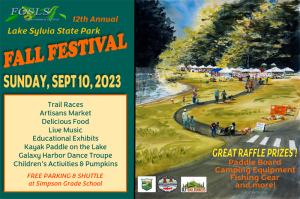
The FOSLS LAKE SYLVIA STATE PARK FALL FESTIVAL continues the tradition for our 12th year!
Come join us on SUNDAY, September 10th, 2023 from 8:30 – 4:00 for a day filled with fun and family activities.
If you enjoy running we have trail Races that begin at 8:30 am. From 10 – 4, you can find one of a kind art and hand crafted treasures at the Artisans Market and eat delicious food while enjoying great live music by talented local acts all on the peaceful shores of beautiful Lake Sylvia. There will also be a kayak paddling adventure, a Watershed Festival by the GH Stream Team, Galaxy Harbor Dancers and educational exhibits in the Legacy Pavilion. You can decorate a pumpkin or take a group photo in our photo booth and we will have kids activities as well.
Park for free at Simpson School (519 Simpson Ave W, Montesano WA), and take a free shuttle to the Festival. Parking inside the park is limited and requires a Discover Pass. Free Disabled Parking is available inside the park. Watch our facebook page at https://www.facebook.com/LakeSylviaStateParkFallFestival for up to date information, applications, and schedules.
Humanities Washington Speaker Event: Homelessness and the Meaning of Home.
Speaker: Josephine Ensign.
This is an online virtual program. You will receive a reminder email along with the link to view from home. You may come to the library to watch this Online Event.
Registrants will have access to the recording for up to 3 days following the event.
Loss of a home, whether through financial difficulties, divorce, illness,
or natural disasters like wildfires, is a widespread and growing problem affecting all of us.
Often thought of as only an urban problem, homelessness also occurs in suburban and rural areas throughout Washington State. What are the historical roots of homelessness, and what lessons can we learn from them? What are the common meanings of home to us, and how can we apply those meanings to our responses to homelessness in our communities?
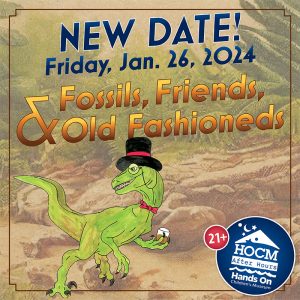
We’re back from extinction and we’ve changed our name!
Join us for a Dino-mite night at our Adults Only (21+) special event! Same great fun with an all-new-name HOCM After Hours. (Move over Adult Swim!) This is the perfect time for fossils, friends, and old fashioneds! Dig up your curiosity, dust off your khakis, and shake your bones to DJ Wes Jamieson. Unearth the secrets of paleontology with fossil experts from the Fossil Team PDX. Meet birds of prey with the Raptor Ambassadors and The Falconer. Try your hand at whiskey trivia, learn about distilling and craft your own infusion. Go back in time to the dawn of the dinosaurs and make a dino egg bath bomb and create a wax fossil cast.
Check out our website for more details and activities!
Explore craft brewing and enjoy tastings, fun activities, food, music & more!
BeerCraft is our most popular HOCM After Hours event! This 21+ adults-only night celebrates craft brewing and showcases some of the best local breweries, cideries, and specialty beverage purveyors to sample and explore. Chat with brewing experts as you eat, drink, and play your way through the Museum!
Tickets: $40 until 5 p.m. on April 19th. $45 at the door
Ticket includes admission for one, a souvenir tasting glass, six four-ounce tastings, and all activities. (Additional tastings are available for $3 each. Food and beverages are also available for purchase.)
Important: Hands On Children’s Museum (HOCM) does not use third-party ticket sellers and cannot guarantee tickets purchased from any person or organization except those purchased directly through HOCM or transferred to another person through HOCM.
Check out our website for more details and activities!
Come join us for a fun night of speed dating at Meltdown! Whether you’re looking for love or just want to meet new people, this event is perfect for you. Get ready to chat, laugh, and maybe even find a special connection. Who knows, you might just meet your match! Don’t miss out on this exciting opportunity to make new friends and potentially find love. See you there!

Local musicians playing throughout downtown
Preview of Kurt Cobain Tribute Gallery
Gibson Les Paul Guitar drawing for participating musicians
Group “Come As You Are” song by Nirvana
Artist Stage, Bridge Stage, Local Venues, and much more (something for everyone)
Special Appearance from Portlandia “Angel Bouchet” as her blues band
Roger Fisher’s (Heart) The Human Tribe on The Music Project’s Main Stage
The Boni Fide Band featuring Krist Novoselic on The Music Project’s Main Stage














